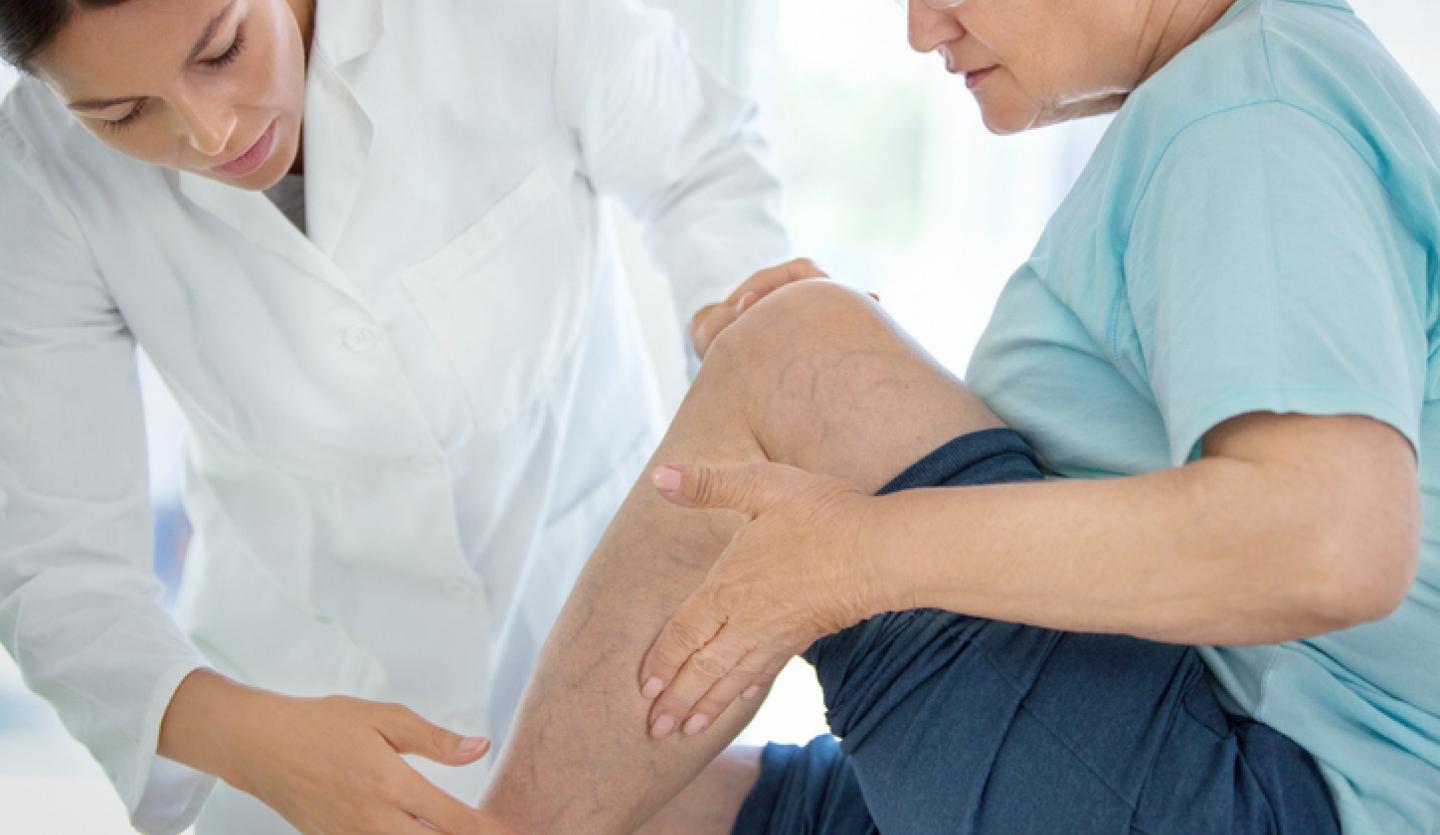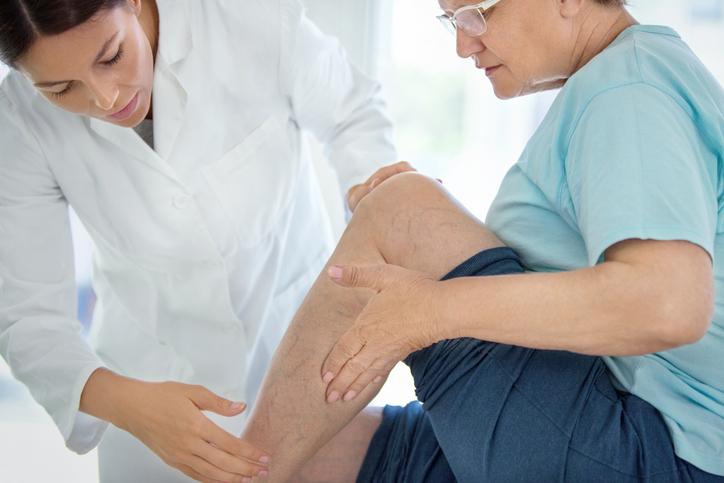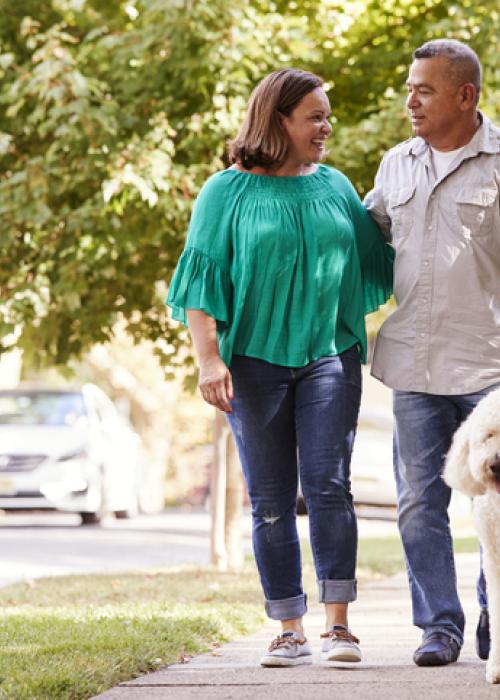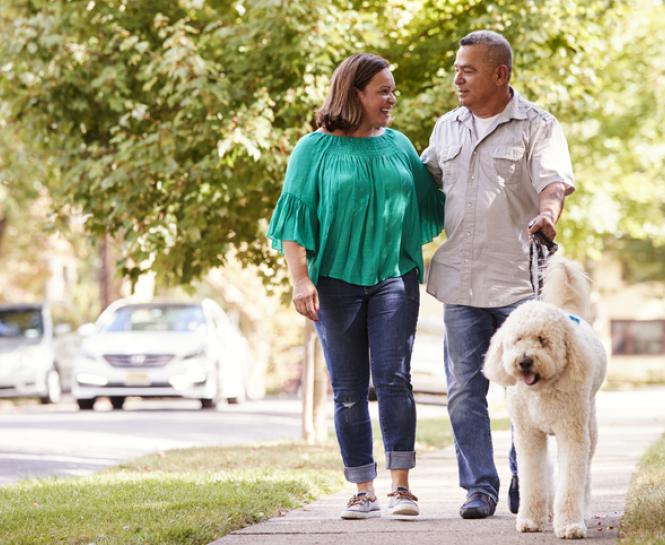Why is vein health important?
Veins carry oxygen-poor blood from body tissue back to the heart.
“Veins play a significant role in keeping us healthy, but often patients do not think about their importance until unhealthy veins cause health complications like poor blood circulation and blood clots,” said Dimitrios Virvilis, MD, Catholic Health Vascular Surgeon. "Venous insufficiency has many forms and stages and can significantly affect the quality of life of patients with that disease."
He noted that maintaining good lifestyle habits, like regular exercise and a well-balanced diet, can keep veins healthy.
How do I know if my veins are affecting my health?
“It is not always easy to know if your veins are unhealthy, but the color of your skin, the presence of varicose veins and leg swelling can play a significant role in identifying a problem,” said Dr. Virvilis.
Achy or painful legs are a significant sign of unhealthy veins. This pain may get worse after standing or sitting for long periods. You may also notice swelling in your legs or ankles, called edema. Fluid can build up in the surrounding tissues when your veins do not work correctly, and over time, that can progress to skin discoloration or even the creation of open wounds in those areas.
What are common vein conditions?
“Most people think of varicose veins,” said Dr. Virvilis. “While that is one of the most common vein conditions, it is not the only one. Talk to your primary care physician if you are concerned about your veins. They may recommend you to a vein specialist for further diagnosis and treatment.”
Varicose veins and spider veins
Varicose veins are swollen, twisted veins that are usually felt under the skin. They usually occur in the legs but can also occur in the arms or other areas less frequently.
Spider veins are smaller varicose veins. They look like spider webs or tree branches. Although you can see them, they do not bulge under the skin like varicose veins.
Deep vein thrombosis (DVT)
Deep vein thrombosis is a blood clot in a deep vein, usually in the legs. If the clot breaks free, it can move to the lungs and cause a severe, potentially life-threatening condition called a pulmonary embolism.
Superficial thrombophlebitis
Superficial thrombophlebitis is caused by a clot in one of the superficial veins, most frequently in the lower extremities. It may cause pain, irritation and swelling in that area.
Venous insufficiency
Venous insufficiency occurs when your damaged leg veins cause blood to pool in the legs.
Venous ulcers
Sores on the legs that heal slowly, usually due to venous insufficiency left untreated for a prolonged period of time.
How can I improve my vein health?
“Following these tips also improves your overall health,” said Dr. Virvilis.
Eat a balanced diet. Include fruits and vegetables. Foods high in vitamin C can help keep your veins wide and open. Vitamin K keeps your vein walls healthy to improve circulation. Read more about healthy eating.
Elevate your legs. Rest your legs above your heart. Gravity helps blood flow back toward the heart, preventing it from pooling in your legs.
Quit smoking. The harmful chemicals in cigarettes make it harder for your heart to pump blood. Carbon monoxide can damage the walls of your veins. Nicotine makes your veins narrower, so it is hard for blood to flow to your organs. Read more about quitting smoking.
Stay active. The longer you sit without moving your legs, the more likely you will develop a blood clot. If you have a job that requires you to sit for a long time, get up regularly and walk around to get your blood pumping.
Stay hydrated. Water thins out the blood, helping it flow more freely. If your blood is too thick, it can put your veins at risk of blood clots. Read more about how much water to drink.
Wear compression socks. Special tight-fitting socks apply pressure to your legs, improving blood flow. Wear compression socks whenever you need to sit for a long time, such as on a long flight or during work hours. Read more about long travel and blood clots.
Explore our vascular medicine and endovascular surgery services.







